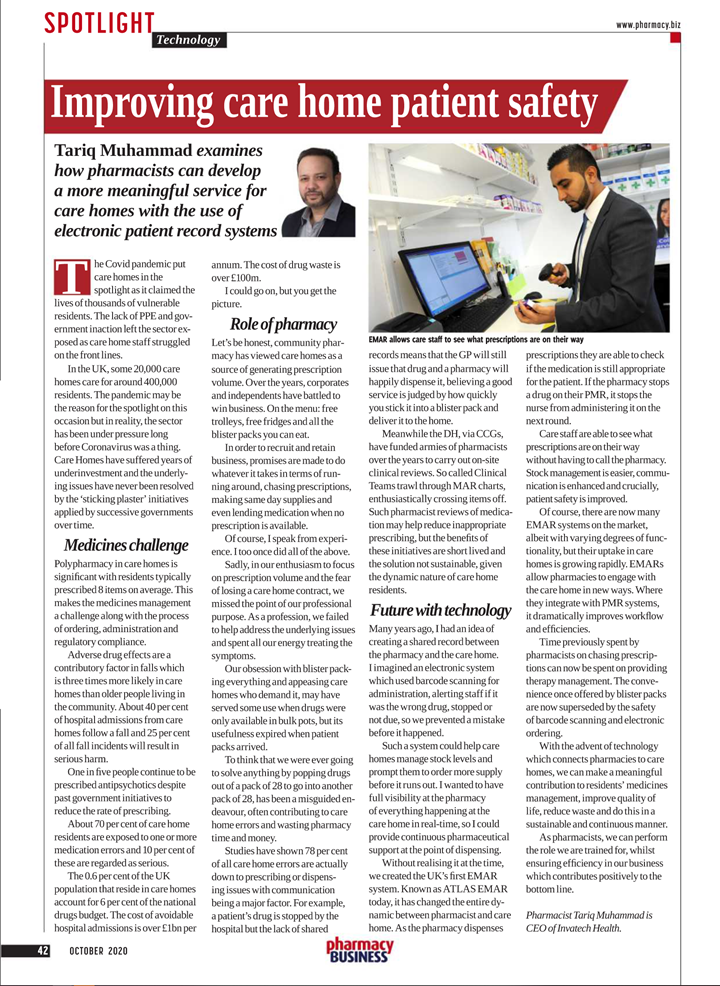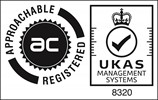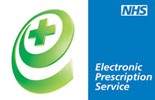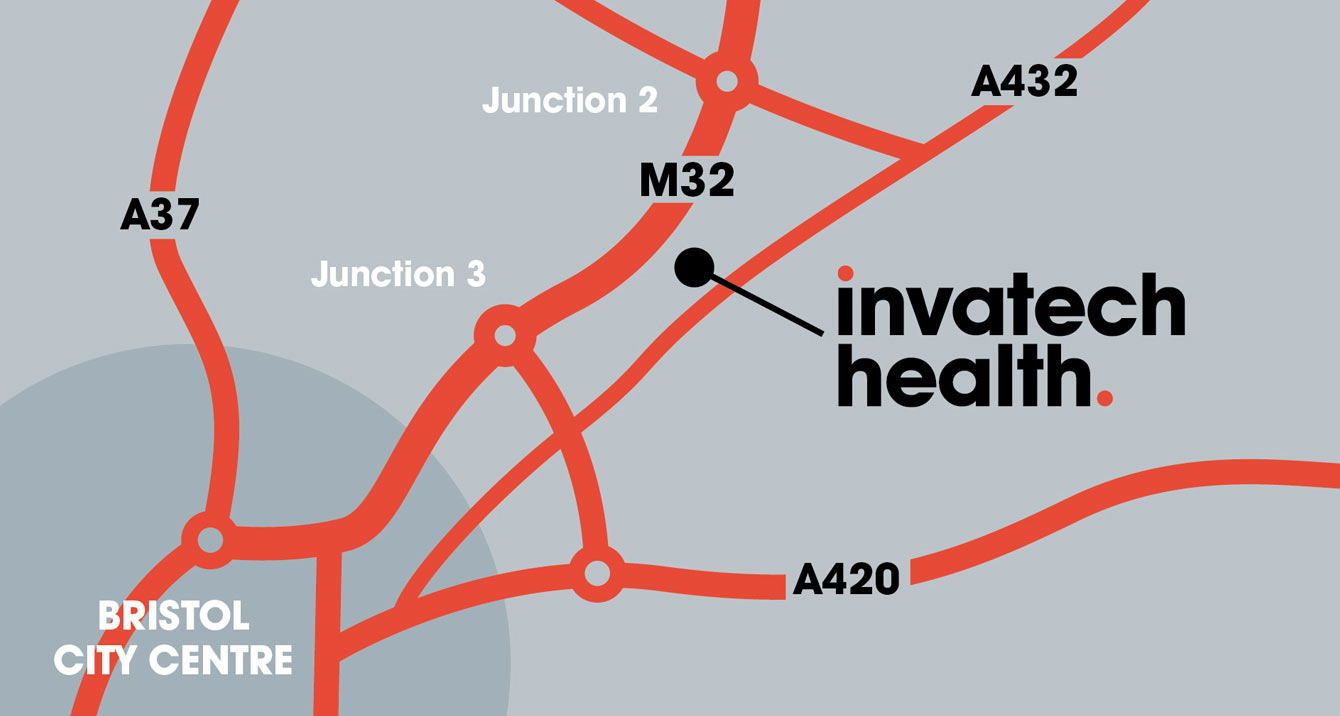The Future of Care Home Services with EMAR
The Covid pandemic put care homes in the spotlight as it claimed the lives of thousands of vulnerable residents. The lack of PPE and government inaction left the sector exposed as care home staff struggled on the front lines.
In the UK, some 20,000 care homes care for around 400,000 residents. The pandemic may be the reason for the spotlight on this occasion but in reality, the sector has been under pressure long before Coronavirus was a thing. Care Homes have suffered years of underinvestment and the underlying issues have never been resolved by the ‘sticking plaster’ initiatives applied by successive governments over time.
The Medicines Challenge
Polypharmacy in care homes is significant with residents typically prescribed 8 items on average. This makes the medicines management a challenge along with the process of ordering, administration and regulatory compliance.
Adverse drug effects are a contributory factor in falls which is 3 times more likely in care homes than older people living in the community. 40% of hospital admissions from care homes follow a fall and 25% of all fall incidents will result in serious harm.
1 in 5 people continue to be prescribed antipsychotics despite past government initiatives to reduce the rate of prescribing.
70% of care home residents are exposed to 1 or more medication errors and 10% of these are regarded as serious.
The 0.6% of the UK population that reside in care homes account for 6% of the national drugs budget. The cost of avoidable hospital admissions is over £1bn per annum. The cost of drug waste is over £100m.
I could go on, but you get the picture.
The Role of Pharmacy
Let’s be honest, community pharmacy has viewed care homes as a source of generating prescription volume. Over the years, corporates and independents have battled to win business. On the menu; free trolleys, free fridges and all the blister packs you can eat. In order to recruit and retain business, promises are made to do whatever it takes in terms of running around, chasing prescriptions, making same day supplies and even lending medication when no prescription is available.
Of course, I speak from experience. I too once did all of the above. Sadly, in our enthusiasm to focus on prescription volume and the fear of losing a care home contract, we missed the point of our professional purpose. As a profession, we failed to help address the underlying issues and spent all our energy treating the symptoms.
Our obsession with blister packing everything and appeasing care homes who demand it, may have served some use when drugs were only available in bulk pots, but its usefulness expired when patient packs arrived. To think that we were ever going to solve anything by popping drugs out of a pack of 28 to go into another pack of 28, has been a misguided endeavour, often contributing to care home errors and wasting pharmacy time and money.
Studies have shown 78% of all care home errors are actually down to prescribing or dispensing issues with communication being a major factor. For example, a patient’s drug is stopped by the hospital but the lack of shared records means that the GP will still issue that drug and a pharmacy will happily dispense it, believing a good service is judged by how quickly you stick it into a blister pack and deliver it to the home.
Meanwhile the DH, via CCGs, have funded armies of pharmacists over the years to carry out on-site clinical reviews. So called Clinical Teams trawl through MAR charts, enthusiastically crossing items off. Such pharmacist reviews of medication may help reduce inappropriate prescribing, but the benefits of these initiatives are short lived and the solution not sustainable, given the dynamic nature of care home residents.
The Future With Technology
Many years ago, I had an idea of creating a shared record between the pharmacy and the care home. I imagined an electronic system which used barcode scanning for administration, alerting staff if it was the wrong drug, stopped or not due, so we prevented a mistake before it happened. Such a system could help care homes manage stock levels and prompt them to order more supply before it runs out.I wanted to have full visibility at the pharmacy of everything happening at the care home in real-time, so I could provide continuous pharmaceutical support at the point of dispensing.
Without realising it at the time, we created the UK’s first EMAR system. Known as ATLAS EMAR today, it has changed the entire dynamic between pharmacist and care home. As the pharmacy dispenses prescriptions they are able to check if the medication is still appropriate for the patient. If the pharmacy stops a drug on their PMR, it stops the nurse from administering it on the next round. Care staff are able to see what prescriptions are on their way without having to call the pharmacy. Stock management is easier, communication is enhanced and crucially, patient safety is improved.
Of course, there are now many EMAR systems on the market, albeit with varying degrees of functionality, but their uptake in care homes is growing rapidly. EMARs allow pharmacies to engage with the care home in new ways. Where they integrate with PMR systems, it dramatically improves workflow and efficiencies. Time previously spent by pharmacists on chasing prescriptions can now be spent on providing therapy management. The convenience once offered by blister packs are now superseded by the safety of barcode scanning and electronic ordering.
With the advent of technology which connects pharmacies to care homes, we can make a meaningful contribution to residents’ medicines management, improve quality of life, reduce waste and do this in a sustainable and continuous manner. As pharmacists, we can perform the role we are trained for, whilst ensuring efficiency in our business which contributes positively to the bottom line.










